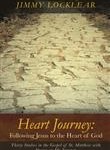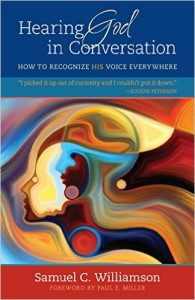Introduction: During 2024, I spent 34 nights in three hospitals in the Atlanta area. As I reflected on each experience that caused my need for in-patient treatment, I was reminded of God’s providence and the personal plan that he has for our lives. Time after time, I’ve seen God rescue me according to a timeline that both surprised and amazed me. Over the next few weeks, I plan to share a variety of stories that I hope will encourage you to trust God on your journey of faith.
It was the afternoon of Thursday, August 1, 2024. I was on a hospital gurney outside one of the operating rooms at the Emory University Hospital Main Campus in northeast Atlanta. Reportedly, Emory doctors perform about 10,000 surgeries and procedures a year. Technically, I was awaiting a procedure to be done by my urologist. I had a large blood clot in my bladder, and it needed to be broken up. I had been in and out of the hospital several times during the Summer of 2024 primarily dealing with BPH – Benign Prostate Hyperplasia.
My prostate had been observed to be enlarged for probably ten years and I had a high PSA. Prostate Specific Antigen is a protein produced by both cancerous and noncancerous tissue in the prostate, a small gland that sits below the bladder in males. Because of a high PSA number in my annual blood tests, I had had exams and occasional biopsies performed to check for tumors or cancerous growths. Mine had all been benign.
But now, my prostate had gotten so large that it was pushing on my bladder and preventing the flow of urine. Two months previously, medical staff had inserted a balloon catheter into my bladder through my urethra to allow urine to flow out. I was not able to urinate at all on June 6, 2024, while in Atlanta’s Grady Memorial Hospital after suffering a seizure while trying to titrate off of anti-seizure medicines at the prescription of my neurologists after taking Keppra for five years. I was on Keppra after suffering a seizure in 2018 that was diagnosed to likely have been residual from a previously undiagnosed stroke. My cardiologist believed it likely occurred in 2013 when I had a major heart attack while attending a work conference in Montreal.
After experiencing no seizures for five years while on the Keppra, my medical staff determined I could go off of the medicine. That turned out to be a bad idea when I suffered a seizure while folding laundry in our guest bedroom on the evening of June 5, 2024. Because I had fallen and hit my head, I was taken to the trauma center at Grady by the EMS truck. Broken glasses and a black eye were that extent of the damage it seemed. But, the next day in my hospital room, I couldn’t urinate. Sometimes a bladder freezes up as a result of a seizure, but a couple of days later things should’ve loosened up.
Along with going back on Keppra, I left the hospital with a foley catheter with a bag attached to my leg to collect the urine that was now flowing through the rubber tube out of my bladder. Both of these developments were a total surprise. I had very little knowledge or experience with any kind of catheter and none with a Foley catheter. After returning home, and within the next couple of days, I had the catheter collapse, which induced bleeding and a trip to the ER and my urologist’s office to discuss next steps. And a few days after those trips, I landed back in the hospital with a very stubborn and dangerous urinary tract infection that kept me in the hospital for four days on I-V delivered antibiotics.
While in the hospital, doctors took note of my reduced kidney function that had started in November of 2023. So, I had my first of two echograms of my kidneys, which showed that there was a chain reaction from my enlarged prostate pressing on my bladder, which was reducing the free flow of urine out of my kidneys. More on that later. But, back to August of 2024.
As I was waiting for Dr. Ogan and the OR team to prepare everything for my procedure, I was thinking about how challenging the past couple of months had been. In just the few days leading up to this clot, I had experienced multiple times when my bladder and prostate were bleeding and there was blood flowing out of me. The clot was trying to slow some of that, but the clot had to be broken up.
And, yet, through it all, I was given a peace and presence that could’ve only been from Jesus. So much so, that when I was transferred from the ICU to a regular floor or from one area of the hospital to another, the medical staff were disappointed that I was leaving. I talked briefly about this with my urology physician’s assistant Caroline Szyperski who had come by to check on me while I was waiting. She said, “There are lots of people who love you, not only your family, but many others.” Like I’ve experienced before, her words were a reminder from heaven of God’s love and presence. They were timely given in the midst of signing various permissions for the procedure and what measures might be taken if there was a life-threatening event.
After I was wheeled into the operating room, I was transferred to the operating table, then a central line was inserted into my right arm in the event that I needed to receive more meds in a hurry that couldn’t be handled by the standard intravenous line that I had. The anesthesiologist then explained that I’d be given medicine to put me asleep and that they would insert a tube down my trachea to administer anesthesia and help me breathe during the procedure. Dr. Ogan would be inserting a tube up to my bladder to deliver an electric current to the area of the clot and to cauterize the area to prevent further bleeding. The procedure went smoothly and the clot and bleeding area in my bladder was found quickly and dealt with. I woke with a new foley catheter in place and a bit of a sore throat and right arm from the intubation and central line, respectively. The plan was for me to be discharged on Saturday to rest and wait until my HoLEP — Holmium Laser Enucleation of the Prostate – was scheduled in the coming days with Dr. Brendan Browne, the only urologist in the State of Georgia certified to do this procedure to reduce the size of my prostate from the inside and fix the root problem of my recent health problems.
Unfortunately, or perhaps fortunately, the bleeding and clotting restarted a couple of hours before I was to be discharged on Saturday. My wife, Jenny, was in my hospital room waiting for the discharge orders to be signed when I started having some bleeding when one of the urology nurse practitioners was flushing out my catheter. The hospital internist assigned to me came to observe and decided that I wouldn’t be going home any time soon. Too much bleeding.
I had my first meeting with Dr. Browne on July 27, 2024, and he talked through my situation and his belief that I was an excellent prospect for the HoLEP procedure and that we would schedule me as soon as possible. Maybe in about a month. My heart sank. I was ready to be done with this catheter and leg bag situation. In fact, I suggested changing to a straight catheter that I could insert myself when I needed to empty my bladder. I thought that would relieve some of my discomfort of having a bag strapped to my leg for some two months. Unfortunately, I was wrong. Within a couple of days, I was back in the hospital with bleeding and clotting in my bladder. After a new foley catheter was re-inserted, I spent a couple of nights with doctors and nurse practitioners trying to break up the clots through flushing water through my plumbing. Watching has a flow of blooding pouring out of me for hour after hour was quite traumatic and eventually led to the need for two transfusion to restore my red blood cells and hemoglobin.
In God’s providence, all of these complications led to my being moved up the list for the HoLEP procedure that I needed to deal the root of my problems.





